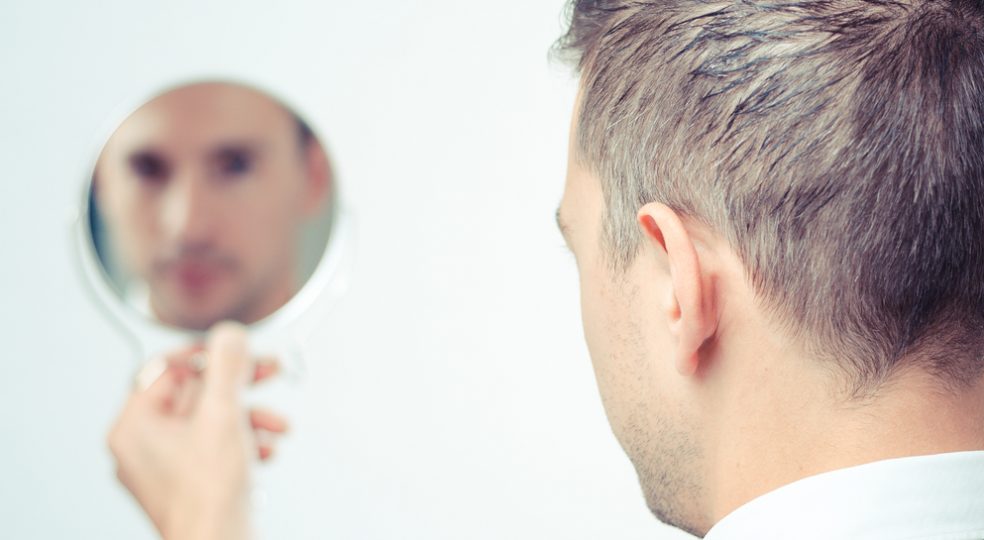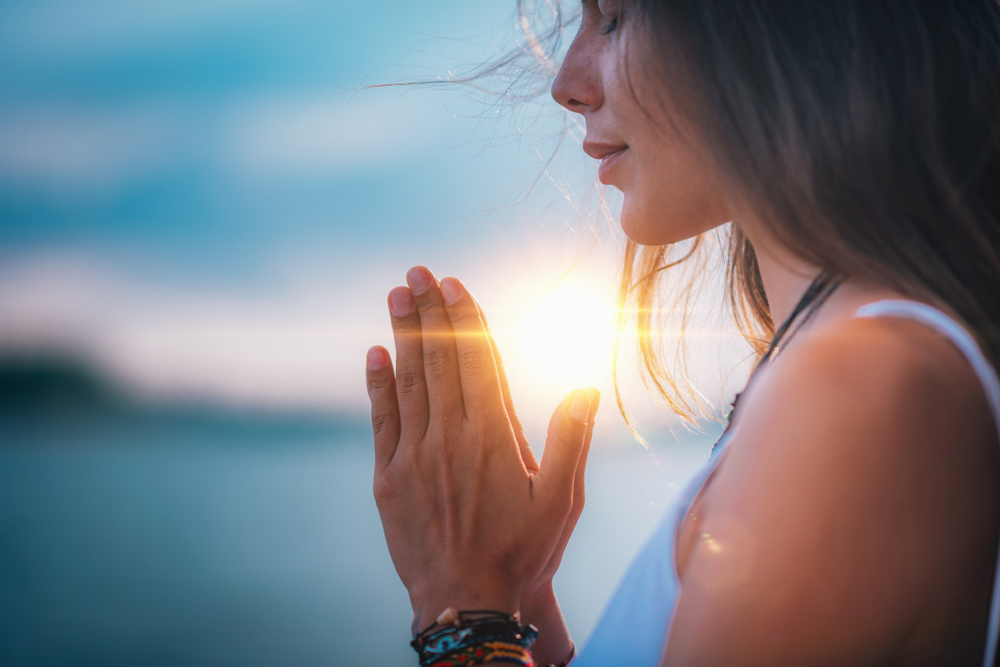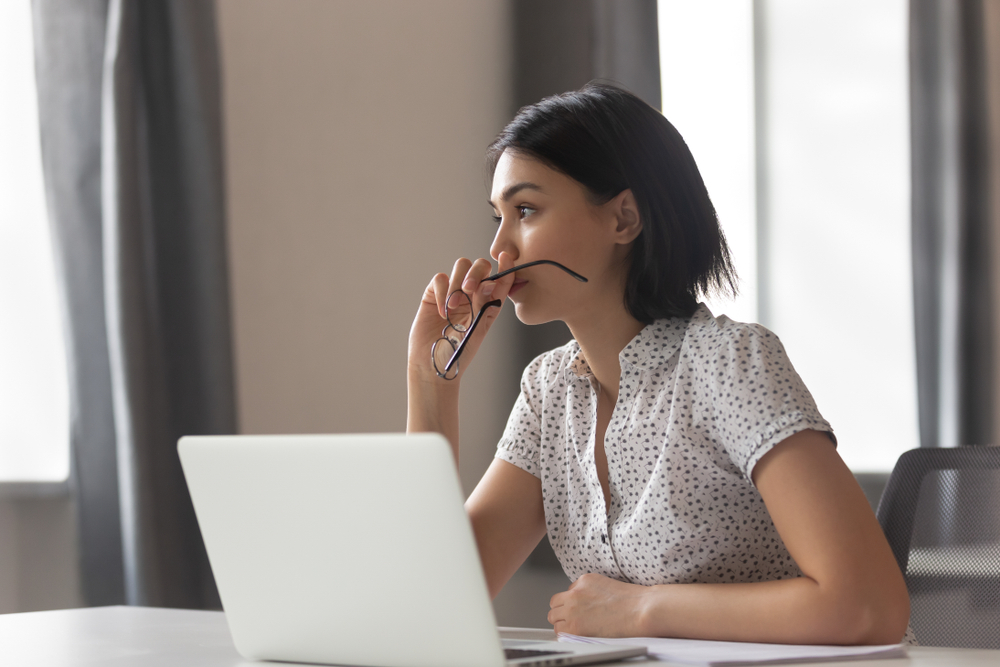
The human being is a social being. Whether in private or professional life, there is almost always contact with colleagues, acquaintances, friends or family. You automatically judge your fellow human beings by their appearance and actions. But what about yourself? How do you appear to others?
What thoughts and feelings do certain situations trigger in you? Do you always react appropriately? You deal with these and many other questions in the context of self-reflection. It helps you to listen to your inner self and to observe and evaluate your own thoughts and actions.
In this Video gives you Greator Coach Tobias Beck a comprehensive insight into the topic of self-reflection and also talks about personal development and personal responsibility.
Roughly summarized, self-reflection describes looking inside yourself. You observe and evaluate your thinking, your emotions and your actions. You question your behavioral patterns and find more about you and your personality out.
Self-reflection can refer to a certain situation, such as a conflict, or to permanent circumstances, such as habits. You question your thoughts, feelings and actions on the one hand as an individual, but also as part of a social construct. For example, you analyse the role you play in your family, your circle of friends or at work.
From a psychological perspective, self-reflection answers the questions:
- What do I see in myself when I look behind the facade?
- How do I feel about myself?
- What makes me stand out?
- What are my social relationships based on?
Biology, on the other hand, describes self-reflection as the ability to develop different neuronal patterns and compare them with each other. New ways of thinking emerge, which may also lead to new beliefs and associated patterns of action.
The terms "self-reflection" and "self-awareness" are often used synonymously, but strictly speaking they do not describe the same thing. In self-awareness, you look at yourself from the outside. In self-reflection, on the other hand, you look inside yourself at the same time. If you would like to learn more about methods for the journey into the inner self and receive valuable tips on this, then please take a look at the Self Coaching over.
So you analyse your personality with regard to the current circumstances, the reactions of your fellow human beings and your emotional world. Self-reflection could therefore be described as a deeper form of self-awareness.
The aim of self-reflection is, among other things, to be able to better assess the impact of your own thoughts, feelings and actions on the future. If you reflect on yourself regularly, you learn to look beyond your own nose and to see things from different perspectives. If you are able to get a picture of how you are currently doing as an individual and as part of the group, you can build on strengths and work on deficits. "Work" is an important keyword, because that's what self-reflection is as well: work on yourself. Reflection is a process and you have to be ready to face it.
This is the only way you can reap the benefits and find out what your role is in the current situation. If you regularly reflect on yourself and the current circumstances to which you are exposed, it will be easier for you to find solutions in the future. Situations that you want to change, you approach actively, without having to search for the right way for a long time. Your actions become more goal-oriented, because thanks to self-reflection you know how which patterns of thought and action affect the situation in which you find yourself. The ability to recognize exactly that also has a positive effect on interpersonal communication and dealing with your fellow human beings.
You can assess in advance what your actions will bring about at that particular moment. Self-reflection therefore gives you a certain foresight that helps you, for example, to resolve conflicts quickly or even to avoid them altogether. Regular self-reflection can even help you to develop your professional skills more quickly. This suggests at least one Study from Hokkaido University in 2002. It turned out that the self-reflective subjects learned more and also better at work - and even more often acted as role models for others.

The answer to this question is clearly, "Yes!" However, you must be aware that self-reflection is a process that takes time. In the end, you can only benefit from all the insights you gather if you actively use them and adapt your patterns of thought and action accordingly.
Once you've made the decision to consciously address yourself and your social role, you'll probably start by asking yourself, "Where do I begin?" To begin with, it is useful to focus on specific points. Focus your awareness on certain situations, certain behaviors, or your relationship with a person and become aware of the current circumstances.
With this you have defined your starting point. All in all, self-reflection consists of five steps and you have already mastered the first one. You have now defined your current situation. The second step is to really become aware of it.
Ask yourself to what extent you yourself are responsible for the prevailing circumstances. The responsibility does not always lie with others, but to a large extent also with yourself. Once you understand this, your view of things becomes much clearer.
In the third step, the question is: "Where do I want to go?" Set a goal that shows you that self-reflection actually has a purpose and that you can benefit from it. Then it's on to the fourth step: the actions that will take you to that goal.
Check which paths can bring you success and then evaluate which ones are really suitable for you personally. Compulsion is not the solution. Remember, even small steps lead to success. In the fifth and last step, it is ultimately a matter of incorporating the experience gained so far.
Has the path you have chosen really brought you closer to your goal, or is there room for improvement? In the fifth and final step, take the time to analyse whether you still need to adjust your approach somewhat. For example, if certain circumstances have changed, the path you have chosen may no longer be conducive to your goal. Then you should readjust.
There are three qualities or skills that will help you become more self-reflective. These include:
1. openness
2. powers of observation
3. objectivity
Openness in this context means that you are able to become aware of your own beliefs and prejudices that you may have. Once you realize this, you are able to see things as they really are, without bias. Good observation skills help you to see yourself with the same detachment and perspective as others. Objectivity in the context of self-reflection means that you understand that you are much more than just a construct of your thoughts, emotions, and Needs are.
As a rule, it is much easier to evaluate others than to criticize oneself. Not infrequently, one simply gets in one's own way and perhaps even has Fear from facing your own emotions and thoughts.
This is contrasted with a particularly critical view of the self, which even at the Self-esteem can gnaw at you. It's important that you find a middle ground that leads you to a realistic self-image. To help you do that, we've put together 10 tips and exercises for you.
Self-reflection is not something you can do overnight. There is no switch you can just flip. What you need is time to become aware of yourself and your current circumstances and to analyze them. In doing so, you move forward step by step. This process can take several weeks or months, in some cases even years.
It is important that you allow yourself this time, because only then will you make it to your goal. It's true: "There's strength in rest." So create time windows for yourself in which you can concentrate on yourself. Only when you can reflect on the past, present and future in peace and quiet can you identify points for improvement and find solutions.
Man is a creature of habit. Integrate self-reflection into your daily routine. SO it will be easier for you to stay on the ball. For example, start your day by visualizing what you can do today to improve your performance. Achieve goal.
You can also end it by reviewing what happened. Analyze what went well and what you should have done differently. Ask yourself how you should ideally have handled the situation.
What keeps most from self-reflection is not necessarily the fear of facing what lies dormant within. Often, feelings and doubts in particular are labeled as silly. But every emotion and every thought has an origin that needs to be uncovered.
Only when you succeed in this, can you detach yourself from them. This in turn will enable you to take another step forward. So allow thoughts and feelings for the sake of your personal development.
Judging yourself objectively sounds easier than it actually is. It's not uncommon that you may perceive yourself differently than the people around you. So just ask how others see you and get some feedback. Only ask people you trust and who you can be sure will be honest with you.
However, you must not forget that they also have certain perception filters. So it's best to talk to several people. You then compare the points that all statements have in common with your own image of yourself.
Everyone always wants to look as good as possible. That's why you quickly close your eyes to deficits and try to hide them as best you can. However, that doesn't get you anywhere. Self-reflection is not about putting yourself in a bad light, but about being honest.
Only when you face your weaknesses can you work on them and grow. But don't get carried away and focus only on your deficits. You won't do yourself or your self-esteem any favors. It is not a crime to be proud of your strengths. A positive self-image with open eyes for weaknesses is just the right mix.
Thanks to self-reflection, you are able to assess where which actions can lead in certain situations. This is exactly what you can use to prepare yourself for challenges. You have a job interview coming up? Then you can probably imagine what to expect. Accordingly, you can already prepare certain answers, because you are able to weigh up which reactions you will probably trigger.
Once you have mastered a challenge, mentally review it and ask yourself why you acted the way you did and what it accomplished. Did your actions lead you to complete success, or could you have done something better? If you analyse your actions afterwards and find out exactly that, you can easily repeat successes in similar situations or correct your behaviour. If you need more support in mastering challenges, you can use our Coaching ...help you out.
As we have already discussed, self-reflection is only really successful if you do it regularly, which can be done in the evening, for example. Don't just go through your day mentally, but think about exactly what went well today and what didn't.
Put yourself in those situations again and find out why they were successful or not. Define the best moment of the day and the one you wish you had done differently. Make sure you finish all your thoughts before you go to sleep. If you are still brooding in bed, it will be difficult for you to fall asleep.
Journal writing is not just for children. It helps many adults to organize their own thoughts and to get a more reflective view on things. To start the day with a clear head, just write down everything that comes to mind when you get up.
Write down what you have planned for today. For example, do you have an important meeting coming up? Then write down how you have prepared for it and what you hope to achieve. Maybe you see that Journaling as a chore at first, but the more pages you write, the more insights you will gain about yourself.
Sometimes your own emotional world can't really be put into words. Do you feel restless and dissatisfiedbut you don't know exactly why? You just can't find an answer, no matter how often you review certain moments?
Then you can Meditation help. There are countless methods that basically have one thing in common: They give you a moment of peace and help you listen to your inner self. A great bonus: Meditation simultaneously builds Stress as of.

You need some support to get started? Then write down a few questions that you answer every day in relation to what you have experienced. They will guide you through your self-reflection and give you some orientation.
There are certain questions you should think about regularly. Always answer them openly and honestly - you don't have to hide anything from yourself. We have put together a few examples for you below.
1. what makes me special?
2. what can I do very well?
Three, what am I proud of?
4. do I draw on my Potential full out?
5. what skills or character traits should I work on?
6. is there something missing in my life right now and if so, what is it?
7. what makes me happy?
8. what do i want for my future self?
9. what would I advise my self from yesterday after reflecting on the day?
10. to what extent do I myself contribute to my own success?
11. do I only look for the blame for a negative experience in others or do I also go in search of my own possible faults?
12. how do I want my fellow men to perceive me?
What demands do others and I make of myself?
14. am I living up to my expectations and those of others?
15. what thought just won't let me rest at the moment?
16. what does my gut tell me?
17. what would I like to achieve next?
18. what is the path to the next destination?
19. which of my abilities can I rely on in difficult times?
20. How will I manage to overcome the next challenge?

No one knows you as well as you know yourself. However, that doesn't mean you can't learn anything more about yourself. If you had to define your personality right now, you would immediately have a honestDo you have an unvarnished answer at hand? Most people would have to think about it for a while. Personality tests are a great way to help.
There are countless variants, but the best known and most popular is the DISC test. It is based on scientific facts and we offer it to you for free on. So you finally find out more about your personality type and build a solid foundation for your self-reflection. Register directly now!


